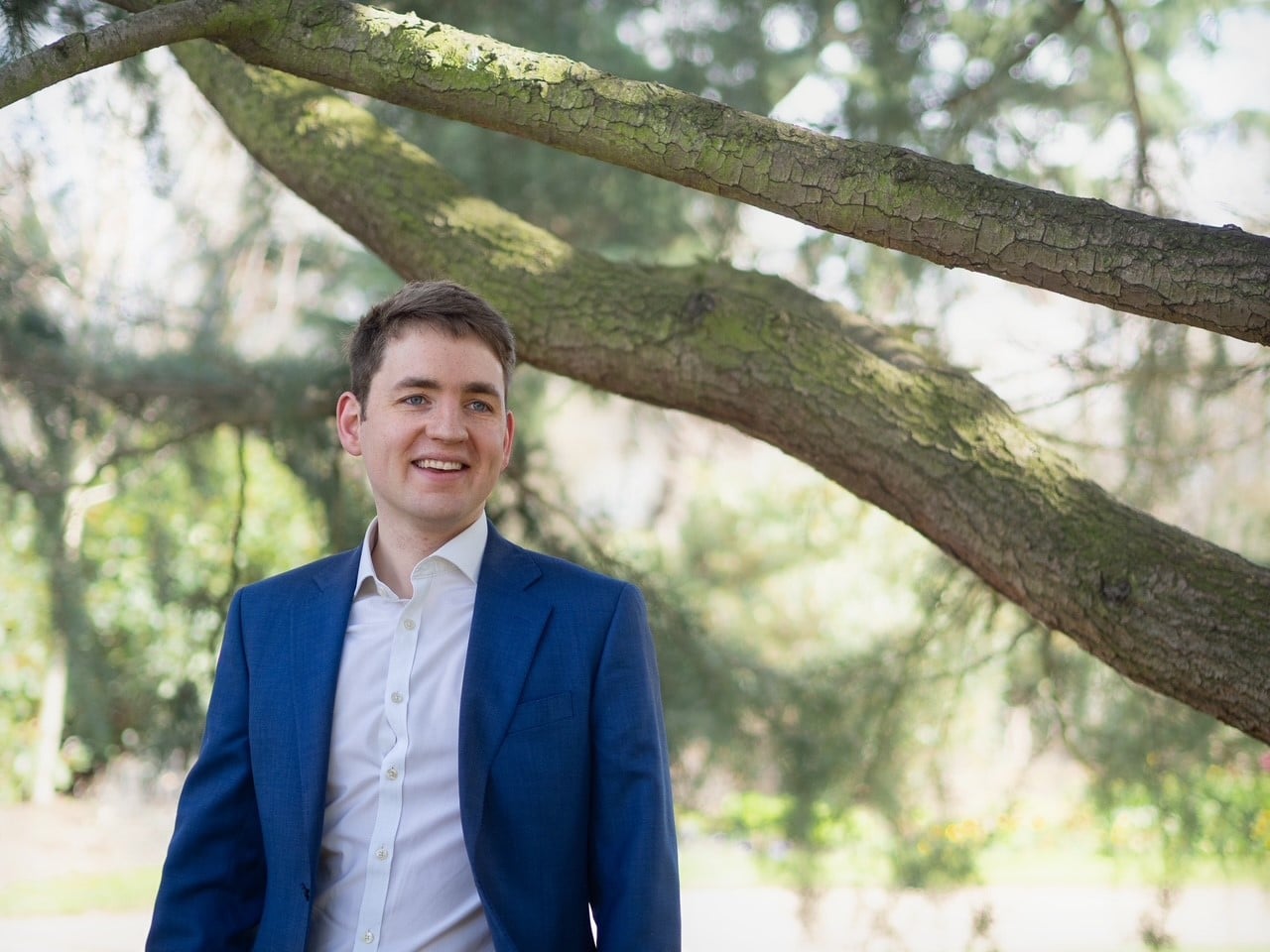
UK Summer School , 2009
James Beddoe
Professional opera singer
James is from Nottinghamshire and took part in a Sutton Trust History Summer School at the University of Nottingham in 2009. He...Tell us a little bit about your background…
I grew up around alpacas and cattle on a remote farm in Totnes, a small town in the South West of England, with my father. We always lived below the poverty line, but when I reached my teens finances became particularly tricky. One day my father had to sell the cottage and the farm, and we moved onto our pet project – a boat which we had spent the last year and a half fixing up. So that’s where we live now, on a sailing yacht in Plymouth.
Life on the boat is wonderful; when I go to bed I can see the stars through the porthole and hear the waves lapping against the hull. However, it did mean that it took me three hours to get to and from school each day. I became adamant that I should make the most of every minute at school, studying the International Baccalaureate and getting very involved in building our student government.
How did you hear about the US Programme and what were your experiences on it?
I heard about the US Programme when I went to a US college fair in London. It was my first ever solo trip to London. It was an incredibly exciting prospect for me, but when I arrived I realised I was a year younger than all the other students! At the time I didn’t have a clue about the American education system. I spent the day asking questions and in the afternoon I heard a panel which explained that being low income and first generation in your family meant you were eligible for the US Programme. I started looking into it in earnest from there.
I applied the next year and after taking part in the programme I got hooked on the US liberal arts system, studying abroad and learning exactly what I wanted when I wanted. My very best memories of the programme, however, are actually from the two years I spent as a team leader. I found the prospect of herding 150 pupils around a foreign country that I barely knew challenging but exhilarating.
What have you done since then?
After the programme I was offered a full faculty scholarship by Harvard, which was an opportunity I leapt at.
I’m now going into my final year. What has shaped me and made me want to make a difference hasn’t been one single class, but the extracurriculars that I’ve done, the projects I’ve taken part in, and the people I’ve met. The project I have spent the most time on is the FYRE programme, of which I was the founding co-chair. FYRE is a Harvard orientation programme which brings together 100 freshmen from low income, first generation backgrounds (like myself) and supports them to make the most of their Harvard experience. The programme helps acclimatise students who might not feel like they fit in at a 400-year-old elite institution.
Besides building cultural capital for disadvantaged communities, I also adore teaching. I’m the only student who’s taught at more than 3 schools within Harvard. After taking a class in computer science and falling in love with it, I’ve gone on to teach the subject at the college, the law school, the business school and even to local high schoolers. In another teaching first, I’ll be the first student to design and teach their own Harvard undergraduate class. It’ll be in science communication and it’s what I’m most focused on at the moment. My motivation for developing this class was the fact that we train some of the world’s best physicists but they can’t explain why their work is valuable, we train some of the world’s most important doctors but they can’t communicate with their patients, and we train leading climate scientists but they can’t explain how we can avert a catastrophe. We need to change that.
Ambitions for the future?
I am a stem-cell biologist with a passion for education, who loves venture philanthropy and hip-hop dance … and I have no idea what I want to do in the future. I’m excited to find out. With the education I’ve received, I’m not really thinking about what specific job I can get. I’m now confident that I know what I love, that I can pull that out of many jobs, and that I will begin innovating again wherever I land.
Advice for future Sutton Trust students?
Don’t listen to too much advice. Advice is the way that someone else found a path that worked for them. Being comfortable enough to go and forge your own path is much, much more rewarding and the only way you’ll really be fulfilled. Get comfortable with being uncomfortable.
Want to inspire students with your story? Get in touch with us at [email protected] – we’d love to hear from you.
Browse our library of alumni stories and continue to be inspired!